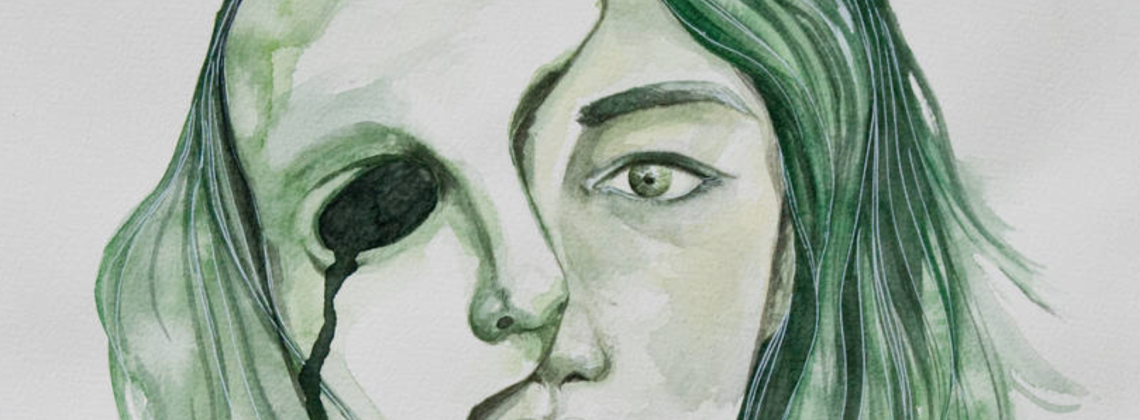

The complexities of any life defy our penchant for abstraction
Though frequently in the news, AI is not the only contemporary challenge to a clear-eyed appreciation of human distinctiveness. In our well-intentioned efforts to do justice to the richness and complexity of our humanness, we have elevated the abstraction of group identities above not just the concrete realities of what we share across groups but also our particularity as individual persons.
I was awakened to this troubling realization in two recent conversations with thoughtful and successful young professionals—one from inside the faith-based world and one from outside, one more progressive politically and one more traditional.
In one case, a progressive-leaning non-profit organization was selecting its annual list of special awardees. One nominee was emerging in the lead until someone realized that another person of the same ethnicity and sex had received the award the year before. The selecting committee did not realize the nominee had other relevant identities. Whatever accomplishments had motivated the initial consideration of this nominee were lost in the overriding and ironically mistaken concern that the person did not serve to demonstrate to the watching public an appropriate concern for a balanced diversity of identities among the awardees.
In the second case, I learned that a branch of a national denomination was considering whether to ask speakers to identify their respective categories of self-identification—such as age, sex, or ethnicity—when they came to the podium to speak. As I discussed this situation with someone familiar with the situation, I was assured that the motivation to require this practice was entirely a concern for justice. The denomination wanted to document their stated commitment to hearing from a wide range of voices on all matters of concern to their members—certainly, as we agreed, a worthy goal.
But as our conversation proceeded, we reflected on the oddity of some of the unintended consequences. For one thing, it becomes a matter of fad as to which, of the magnitude of our human identities, is deemed worthy in any one moment to be recognized and counted. And how long would the list need to be to ensure that no one in the audience would feel excluded? On a more troubling level, such a practice seems prone to reduce the value of each speaker to the number of abstract categories they fulfill in any given context, rather than to value them for their basic personhood, reflected in their distinctive callings and gifts.
Reducing people to their abstractions fails to see them in the context of their lived stories, whole and, though certainly shaped by their various identities, greater than the sum of their particular identities. Such a practice continues to keep us focused on differences rather than on what we share as human beings, or, as in the denominational setting, our common faith.
To take a more publicly available example, note the way such ideologies as “settler colonialism” have taken hold of recent student protests focused on the injustices in Gaza. Ideological frameworks can certainly be helpful tools for focusing attention on specific aspects of the human condition or historical contexts. We owe a great deal to the insights of Marxism, Feminism, Critical Race Theory, and other helpful abstract frameworks. But they are just that—abstract frameworks. They cannot possibly capture the multi-dimensional complexities of any specific situation. They serve well to begin a discussion about justice, but the very inflexibility of their categories stands in the way of external critique or deeper analysis of particular situations. The various actors—all abstractions—have already been assigned their predetermined roles.
As a historian of the Enlightenment period in the history of the West, I have great appreciation for those in the past two centuries who have resisted the modern tendency to equate “humanness” with the experience of white Europeans, most often male Protestant Christians. However, even a cursory acquaintance with the documents that inspired the American and French revolutions reminds us that, despite stating their theoretical claims to natural and inalienable rights in human terms, the founders could not quite believe that these claims applied in practice to women or those of other races. As individuals and as societies, we have lived ever since with the tragic consequences of that gap between theory and practice.
We have sought in recent decades to correct the injustices—large and small—that emerged from this reductionist view of human nature. As a society, we are less confident in the ideals of objectivity and our capacity to see clearly from some abstract location outside our own place and time. In the academy, we have area studies programs that focus on individual aspects of human experience. In commerce, we have segmented marketing in all directions fueled by the data gathered by our personal devices.
I am not at all suggesting that we abandon our ongoing efforts to acknowledge the richness and complexity of human experience, nor that we abandon the ideological tools that call attention to particular patterns in human interaction that favor the flourishing of certain groups at the expense of others. Precisely the opposite! What I am advocating is that we not be lured into thinking that when we have achieved the perfect balance of various identities in our organizations or put forth one more abstract ideological framework that we have completed the work of creating a just and flourishing society for real human beings.
Identities of gender, race, religion, or sexuality are one-dimensional abstractions. They do not do justice to the complexity of any one individual human being in their particularity. They drive us to falsely categorize people without knowing their whole story. They lock us as groups into roles growing out of the past without creating realistic hope of future redemptive possibilities.
Further, these identities encourage us to focus so exclusively on where human beings differ that they fail to acknowledge all that we have in common, or our shared interest in imaginative solutions for our ever more desperate global human community. If we forget what we share, we will lose entirely our capacity for communication across our various and multiple differences. It is this capacity to communicate across difference, and to enter into uncomfortable and complex analysis—difficult as this often is—that empowers the problem-solving that will result in thriving communities at both the local and global levels.
As we move toward the elections in November, it seems we are on a trajectory toward increasing focus on our differences—differences in party politics, religion, race, ethnicity, economic status, gender, moral vision, and a thousand other identities. And yes, these differences have been intensified by the inequitable distribution of the burden and pain of history. No question.
But while we must pay attention to these differences, let us make an equally energetic attempt not to stop there! Let us dare to go beyond the complexity of abstract identities. Let us take the time to see how these identities and these histories inform and shape the stories of real individual persons and real particular groups. Only then will we have even the faintest chance of creating a flourishing society enriched by our diverse gifts: a world worthy of our shared humanity.
Shirley A. Mullen (PhD) is President Emerita of Houghton College and longtime history professor. Her most recent book is Claiming the Courageous Middle: Daring to Live and Work Together for a More Hopeful Future (2024).
Image: VeroFalcioniArt, Creative Commons
True: “these identities encourage us to focus so exclusively on where human beings differ that they fail to acknowledge all that we have in common…”